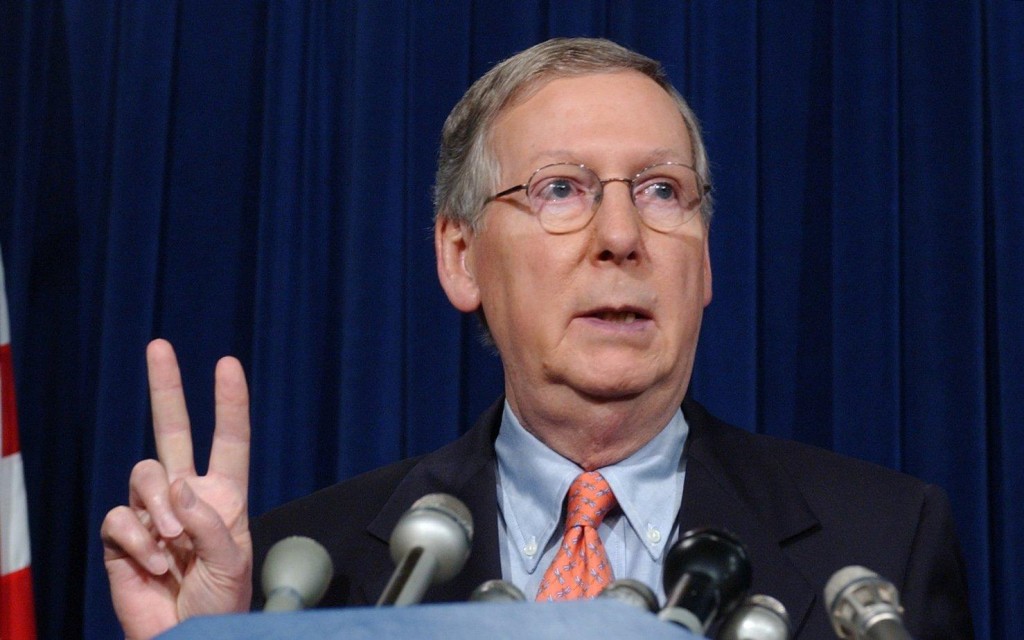
GOP Election Sweep Could Impact Fate of US Online Poker

Mitch McConnell (R-KY) is set to become the Senate Majority Leader, thanks to the GOP gains on Election Day. (Image:AP/Dennis Cook)
That the GOP swept yesterday’s US elections is already well-known, but more murky is how the new Congressional power players will affect the future of America’s online poker industry.
Not that online poker was an Election Day issue in any real sense: there were no ballot propositions directly concerning Internet gaming, and while the players might care about the subject, online poker probably didn’t even rank among the top 25 issues that were discussed by the general public leading up to this week’s voting.
But despite the fact that this election may not have been about poker, that doesn’t mean that the industry won’t be impacted by the results.
The most obvious and widely discussed outcome from Tuesday’s elections was the change in control in the US Senate, of course. The Republican Party gained enough seats to take control of the Senate, an outcome that was far from surprising, given polling over the last few months.
Still, it wasn’t certain until the votes were in, and now that we know that the GOP will have working majorities in both the Senate and the House of Representatives, we can speculate on what that will mean for online poker.
Online Poker Ban More Possible
The most obvious take on this change is that efforts to ban online poker at the federal level will be bolstered by the GOP takeover. While there are supporters and opponents of Internet poker in both parties, only the Republican Party has an official platform position on the subject, one that favors a ban on Internet gambling.
In addition, one of the most infamous proponents of such a ban is Las Vegas Sands Chairman and CEO Sheldon Adelson, a man who is also one of the largest donors to Republican campaigns.
But while that may sound ominous, there’s still a lot that would have to happen before such an online ban would even get a serious push, let alone be passed by Congress or signed into law. Republicans are not universally supportive of an Internet poker ban, with some, like Texas Representative Joe Barton, even proposing legislation to explicitly allow for online poker at the federal level.
And it’s far from certain that the GOP leadership would be interested in having a debate over an online poker ban that might cause fault lines within their own party.
PPA Jokers Win Almost All Races
While the Republican victories in the Senate may be the headline for both the nation and poker players alike, some of the individual races also attracted plenty of attention. The Poker Players Alliance (PPA) produced a list of 22 candidates that it classified as “Jokers” for their opposition to online poker (and sometimes land-based gaming as well). The PPA didn’t explicitly ask members to vote against these candidates, but they did highlight their anti-poker stances and tell voters to contact them about those issues.
If the PPA was hoping that some of these candidates might be defeated, however, that outcome eluded the organization. Of the 22 individuals, 21 of them won, most by very safe margins. The one exception was Massachusetts Attorney General Martha Coakley, who was the Democratic candidate for governor in that state. She lost a close race to Republican Charlie Baker, who won by about 40,000 votes out off more than 2 million that were cast. Coakley was targeted by the PPA for multiple statements she had made against online poker and gaming.















0 Comments